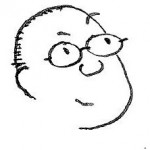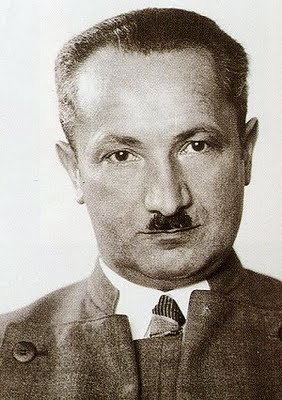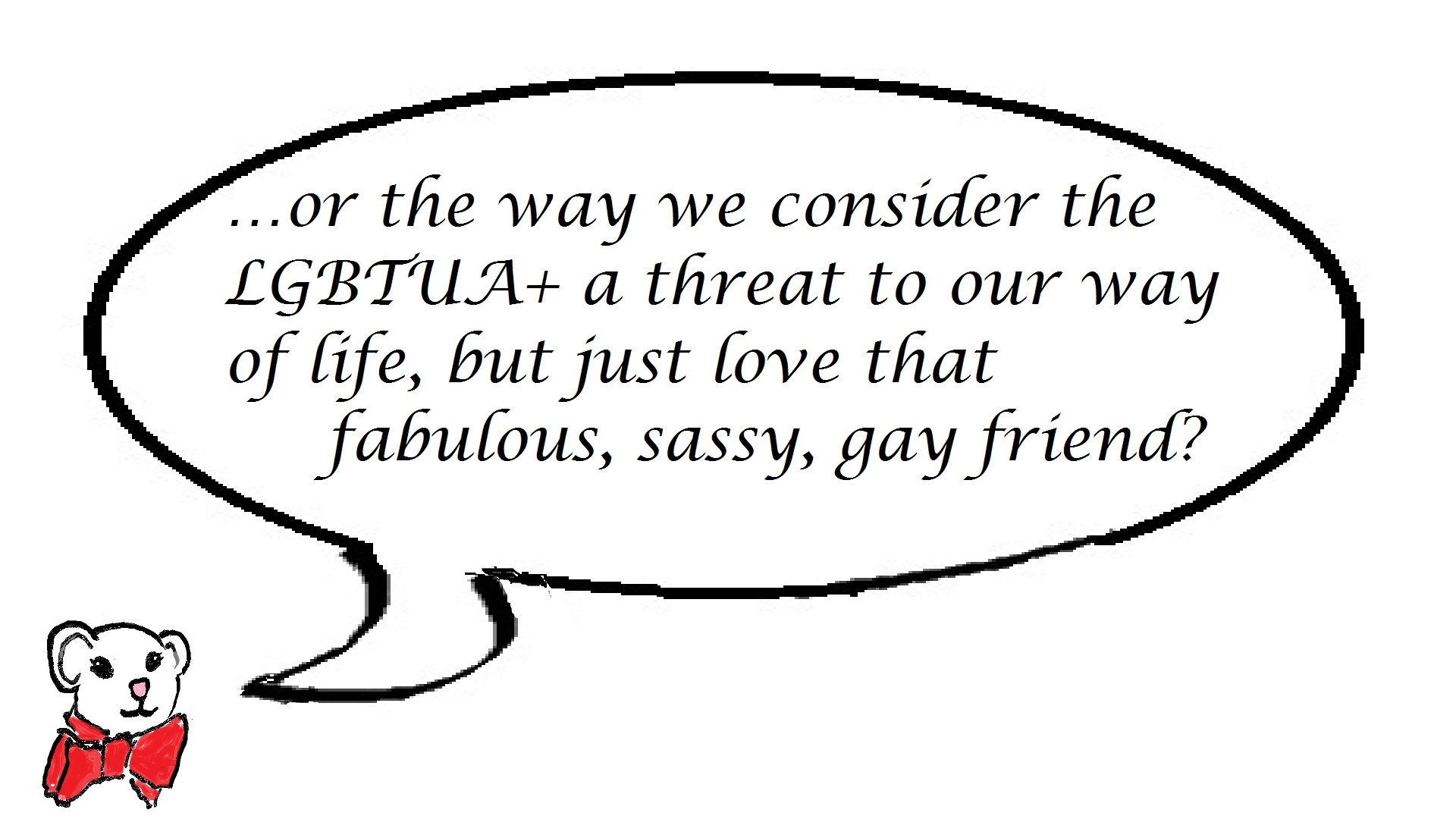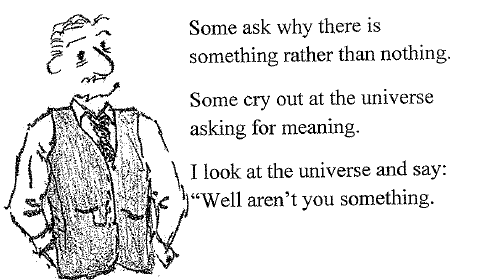 A note from Brandon: The title makes it sound like this post is about Saturday Night Live’s Continental. Don’t be fooled.
A note from Brandon: The title makes it sound like this post is about Saturday Night Live’s Continental. Don’t be fooled.

If my 18 year old self knew I was writing a non-ironic post on this topic, he would smack me in the back of the head. Hard.
Some friends were reading Gary Chapman’s The Five Love Languages and suggested it to K and me, so we gave one of the book’s quizzes a try. It asks people to compare how important five different means of expressing respect and affection are to them: gifts, attention, affirmation, help, and touch. We didn’t learn anything too surprising, (K [No, not that one] already knew, for instance, that I rarely care about gifts, even though I appreciate someone carrying enough to pick one out for me), but the exercise led to a nice discussion about what makes both of us feel loved. If you can get your family to put their smartphones down for a minute, it could provide a good way for you all to reconnect. (Oh, who am I kidding? Surely there’s an app by now. Tell them they can pick their phones back up.)

A student once asked me after class if I thought Patterson Office Tower – P.O.T. – had secretly been named in honor of Kentucky’s de facto leading crop. Examining his bloodshot eyes more closely, I asked how much pot he had had to smoke to come up with the idea. He grinned nervously then ran away. I miss Kentucky sometimes.
One day in graduate school I was wandering the 14th floor of Patterson Office Tower trying to decide what to write my dissertation on, when the head of the department stopped me to note that one of the best things about our field was that you could study anything and call it “Philosophy.” Specifically, he noted that “You could even write about surfing and call it the Philosophy of surfing.” As he walked away I asked myself, “Does Don really want me to write about surfing? Or is this his subtle way of telling me that I’m being very undude (NSFW)?” But it was neither. He just wanted to point out that you can philosophize about anything. Even love languages. So here goes.
First, let’s talk about what makes a language. Language has two main components: meaning and structure. Many linguists, following Noam Chomsky‘s lead, have paid greater attention to the latter, cataloging the rules for combining words into phrases and sentences that native speakers normally pick up without realizing they’re learning them, often without being able to explain them. (It was fun to sit around the Stammtisch and realize that we non-natives had an easier time spelling out the rules for which form of “the” to use in German – der, die, das, den, dem, des – even though our Germans friends could of course follow those rules more fluidly than we could. As compensation, one of those Germans had a name for a verb tense we liked to employ in Kentucky in sentences such as, “If he’d wanted to get home before midnight, he would have had to have driven his own car” – which we naturally made trickier to track by pronouncing the key phrase, “woulda haddawa.” Its official name was something like the “past pluperfect hyperbolic subjunctive,” though I still prefer to think of it as “the woulda haddawa tense.”) But although structure is essential to language as we know it, it’s still secondary to meaning. Structure is like the steel frame supporting a skyscraper. Meaning is everything that fills in that frame – even if its only a single story – to create a room where people can work and live.
The easiest way to understand what meaning is is to relate it to action. When I dig holes in the dirt, plant seeds, and water them, my actions are directed at getting plants to grow in my garden. My behavior is making a physical difference in the world. But as all social animals know, every action can also communicate. If for instance, my spouse and I have been squabbling all weekend about whether we’re each doing enough around the house, I might engage in all that gardening activity in order to demonstrate that I’m doing my part. In addition to their physical effect, then, my digging, planting, and watering also convey the meaning that I contribute to the household. All actions can have meanings. Language is distinct in minimizing physical effects in favor of maximizing the meaning it conveys. Speaking always has physical effects on the environment, including increasing the carbon dioxide in the room. But such physical effects are nearly always less significant than the meanings of our words. (That’s why when our words are particularly meaningless, others say we’re full of “hot air.” The quality of the gasses that extrude from your mouth should be the least noteworthy aspect of your speech.)
By this measure, Chapman’s categories hold up well as examples of language. Giving someone a gift or a hug doesn’t have the grammatical structure of a sentence like, “Ah, my great bundle of sweetness, it is love, love, love at sight first,” but they likely do a better job of expressing your care for the recipient. And even if these exchanges have greater physical effects than speech usually would, in most cases I would expect the meaning they convey to be more important. So I’m going to side with the author here: the examples he offers really should be considered languages of love.
But that’s not what I wanted to talk about. What really grabbed my attention was whether Chapman had captured all of the major categories of love languages. Check out that list again: gifts, attention, affirmation, help, and touch. Are those the main ways you give and receive love? A little Googling shows that at least one commenter has suggested food as an additional category, which fits nicely with the theme of the Bistro. The other option that comes to mind for me is play.
Play is so essential to my way of being in the world that I can hardly imagine life without it. I’m approaching the end of my first year living here in the Pacific Northwest, and while there is so, so much I love about this place, I’m still building my network of friends. That’s in no way a knock on the wonderful people I’ve gotten to know, who are kind, helpful, neighborly sorts all around. But very few of them want to play as much as I do. I realized this in part because I got to have coffee a couple of months ago with someone who does like to play that much. Without intending to, we immediately fell into the sort of goofy verbal sparring that I’m almost constantly engaging in by myself when I don’t have anything better to do (and often when I do). Our whole conversation was just the perfect balance of serious discussion punctuated at nearly every comma and full stop by some absurdity. I could analyze why play like this means so much to me – how it alchemically transforms both everyday and existential frustrations into sudden and enduring bursts of joy – but I don’t even think that’s the point. The point is simply that play does make me feel alive and connected in a way nothing else ever has or will. It’s my principal language of love.
So that’s the question I’ll leave you with as your after dinner mint: What’s your language of love? Don’t feel generic if Chapman captured yours. This isn’t a contest.  But whether your favorite is on his list or not, I’ll suggest that it’s a valuable and affirming thing to know about yourself.
But whether your favorite is on his list or not, I’ll suggest that it’s a valuable and affirming thing to know about yourself.
So: What’s your real native tongue?
Photo credits: Gary Chapman, University of Kentucky




 Some commentators have expressed surprise at Hegel’s fondness for metaphors involving owls. They haven’t studies this picture.
Some commentators have expressed surprise at Hegel’s fondness for metaphors involving owls. They haven’t studies this picture. Portrait of Cousin It as a Young Man.
Portrait of Cousin It as a Young Man.


